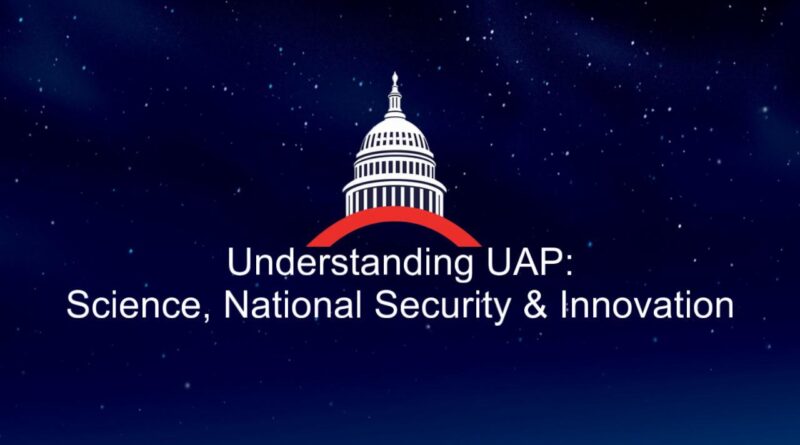Understanding UAP: Science, National Security & Innovation
The UAP Disclosure Fund (UAPDF), in collaboration with the House Committee on Oversight and Accountability, is hosting a pivotal congressional briefing titled “Understanding UAP: Science, National Security & Innovation.”
The session will take place at 11:30am ET on May 1, 2025, in Rayburn House Office Building, Room 2247 (time and location subject to change).
The open, livestreamed event will feature Members of Congress and leading experts who will offer a science‑driven perspective on unidentified anomalous phenomena (UAP), formerly known as unidentified flying objects (UFOs). Discussions will examine the implications of UAP for science, national security, and innovation.
In an era marked by rapid advancements in aerospace, energy, and artificial intelligence, the significance of UAP has transitioned from fringe curiosity to a matter of central importance. This nonpartisan briefing will convene esteemed figures from the realms of science, defense, and technology to discuss the multifaceted aspects of UAP.
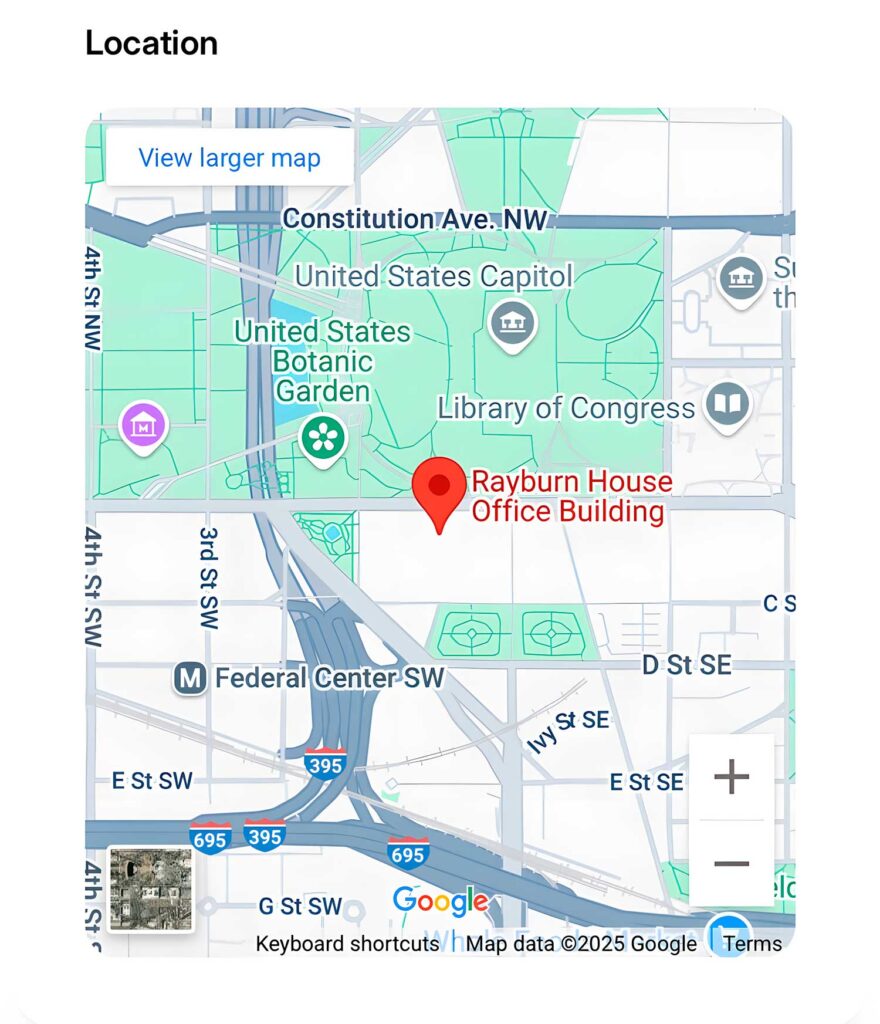
Event Details
Date: May 1, 2025
Time: 11:30am ET (subject to change)
Location: Rayburn House Office Building, Room 2247
45 Independence Ave SW, Washington, DC 20515 (subject to change)
Access: Limited first-come, first-serve public seating. The event will be livestreamed and recorded for later viewing.
Moderator
Luis Elizondo
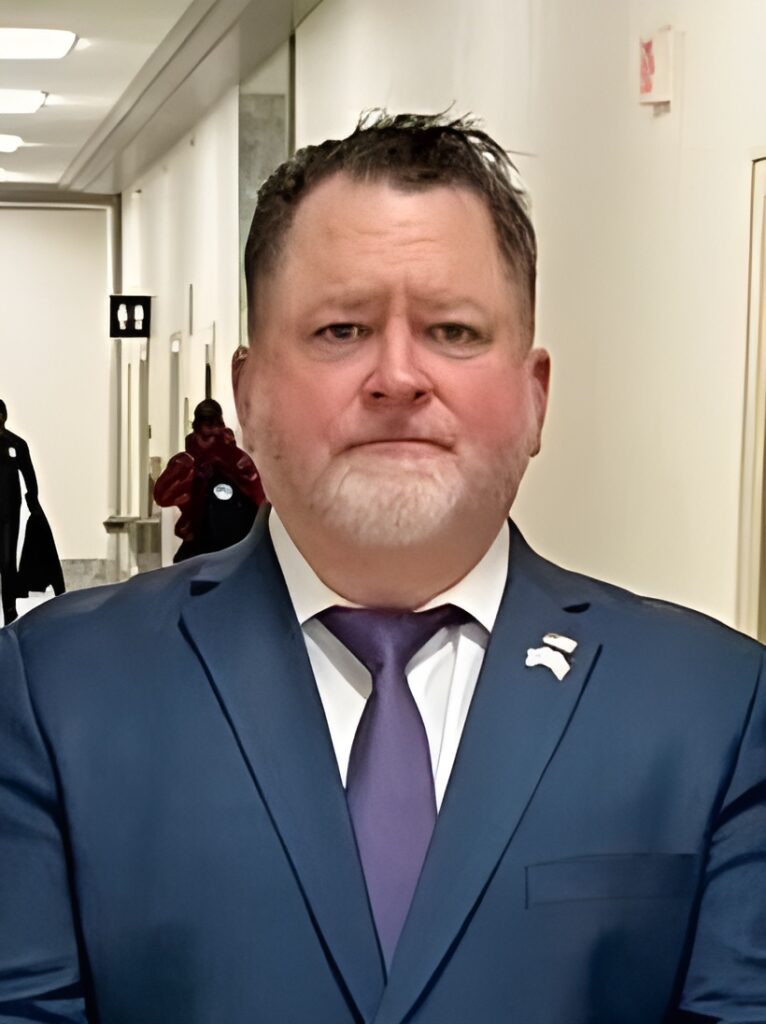
Luis “Lue” Elizondo is the former head of the Advanced Aerospace Threat Identification Program (AATIP), the Pentagon unit that researched UFOs, now known as Unidentified Anomalous Phenomena (UAP). Prior to AATIP, Elizondo oversaw counterespionage and counterterrorism investigations worldwide for the Department of Defense, and also worked for the Office of the National Counterintelligence Executive and the Office of the Director of National Intelligence. Elizondo is a proud Army veteran, and later served his country throughout the world including South Korea, Latin America, the Caribbean, Afghanistan, and other countries throughout the Middle East. Elizondo is a graduate of the University of Miami, where he studied microbiology and immunology.
Panelists – Science Panel
This panel explores what data exists, where the knowledge gaps remain, and how new research frameworks from atmospheric science to astronomy can help us investigate UAP.
Dr. Avi Loeb, PhD

Abraham (Avi) Loeb is the Frank B. Baird, Jr., Professor of Science at Harvard University and a bestselling author (in lists of the New York Times,Wall Street Journal, Publishers Weekly, Die Zeit, Der Spiegel, L’Express and more). He received a PhD in Physics from the Hebrew University of Jerusalem in Israel at age 24 (1980-1986), led the first international project supported by the Strategic Defense Initiative (1983-1988), and was subsequently a long-term member of the Institute for Advanced Study at Princeton (1988-1993).
Loeb has written 8 books, including most recently, Extraterrestrial (HarperCollins, 2022) and Interstellar (HarperCollins, 2023) and nearly a thousand papers (with h-index of 131 and i10-index of 614) on a wide range of topics, including black holes, the first stars, the search for extraterrestrial life and the future of the Universe.
Loeb is the Director of the Institute for Theory and Computation (2007-present) within the Harvard-Smithsonian Center for Astrophysics , and also serves as the Head of the Galileo Project (2021-present). He had been the longest serving Chair of Harvard’s Department of Astronomy (2011-2020) and the Founding Director of Harvard’s Black Hole Initiative (2016-2021). He is an elected fellow of the American Academy of Arts & Sciences, the American Physical Society, and the International Academy of Astronautics.
Loeb is a former member of the President’s Council of Advisors on Science and Technology (PCAST) at the White House, a former chair of the Board on Physics and Astronomy of the National Academies (2018-2021) and a current member of the Advisory Board for “Einstein: Visualize the Impossible” of the Hebrew University. He chaired the Advisory Committee for the Breakthrough Starshot Initiative (2015-2024) and served as the Science Theory Director for all Initiatives of the Breakthrough Prize Foundation.
In 2012, TIME magazine selected Loeb as one of the 25 most influential people in space and in 2020 Loeb was selected among the 14 most inspiring Israelis of the last decade.
In 2024, Loeb was ranked number 3 in publication record and impact of research among all astronomers worldwide over the past 5 years by ScholarGPS. Loeb’s latest TED talk was among the top five most popular TED talks in 2024.
Dr. Eric Davis, PhD
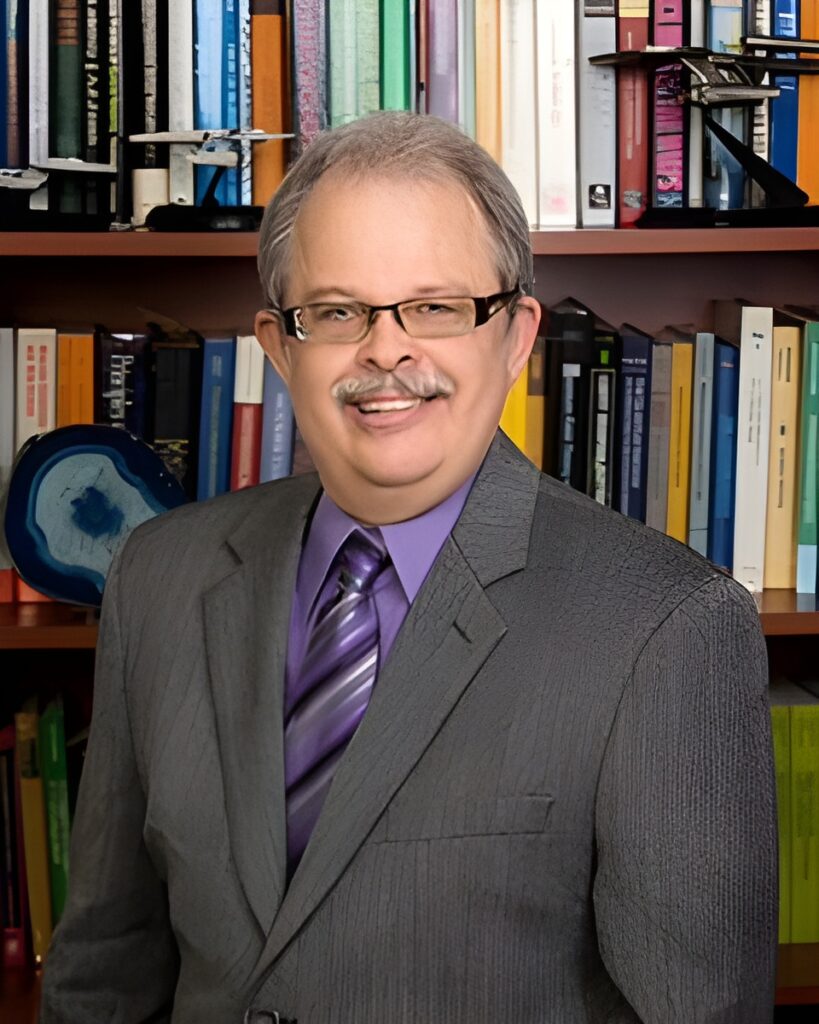
Dr. Eric W. Davis, FBIS received his Ph.D. in astrophysics from the University of Arizona in 1991. His fields of specialization include spacecraft exploration of the outer solar system, planetary sciences, relativity theory and cosmology, space mission engineering, and NASA Breakthrough Propulsion Physics.
Eric is a research physicist at the Institute for Advanced Studies-Austin and EarthTech International, and is also the CEO of Warp Drive Metrics (now in Austin, TX). He contracts with and consults to the Air Force Research Laboratory/Propulsion Directorate-Propellants Branch and the Department of Defense. During 1996–2002 he was with the National Institute for Discovery Science in Las Vegas, NV where he served as the staff Aerospace/Astro-Physics researcher. He also participated in and consulted to the NASA Breakthrough Propulsion Physics program, and cofounded the Advanced Deep Space Transport Technology Assessment (Breakthrough Propulsion Physics) Group at NASA-JSC.
He began his graduate work in 1984 as a mission support and research assistant with the Infrared Astronomical Satellite group at the Steward Observatory in Tucson, Arizona. In 1985, he joined the Voyager Ultraviolet Spectrometer Experiment group at the Lunar & Planetary Lab in Tucson where he conducted research on Jupiter’s magnetosphere, the Uranus and Neptune planetary encounters, and participated in the Voyager 1 & 2 space mission support. Following completion of his doctorate, he became an associate faculty and interim director for the Arizona Astronomy Education Center at Pima College in Tucson. In 1995 he joined the sciences-mathematics faculty at the University of Maryland Asian Division where he was stationed at the 8th Fighter Wing in Kunsan, South Korea. In that capacity he developed Air Force sponsored space mission engineering and Korean theater space reconnaissance training.
Eric has authored papers and given recognized presentations on quantum vacuum (zero point energy), traversable wormholes, warp drive and antimatter propulsion physics. He has also been recognized by the American Institute of Aeronautics and Astronautics for outstanding contributions to national defense and space public policy, and received recognition from the State of Arizona Economic Conversion Council for contributions to commercial conversion of small-medium space and defense businesses in Arizona.
He is a Fellow of the British Interplanetary Society, Senior Member of the American Institute of Aeronautics & Astronautics, a member of the Association of Former Intelligence Officers, and member of the American Astronomical Society. He has served in the capacity of Chief Executive Officer and Chairman, as well as board director, for these and other chapters of professional engineering organizations.
Rear Admiral Tim Gallaudet, U.S. Navy (ret.), PhD
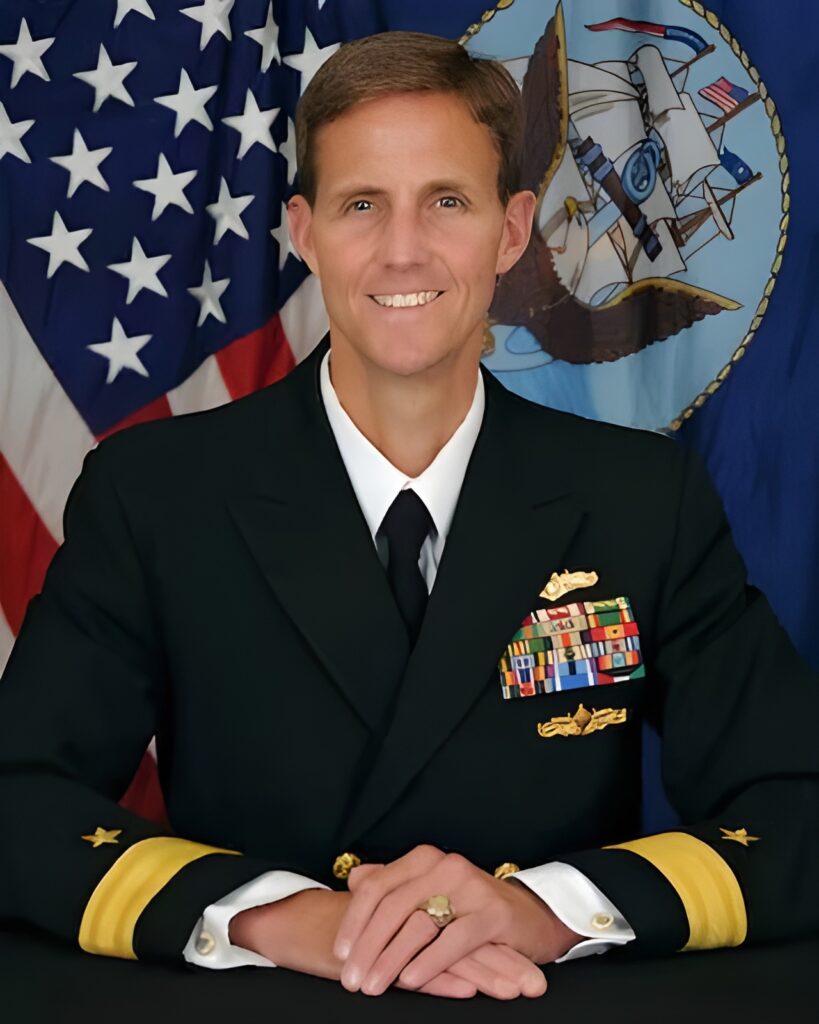
The Honorable Tim Gallaudet, PhD, Rear Admiral, U.S. Navy (ret) is a career oceanographer and technology consultant. Formerly, he served as the acting Undersecretary and Assistant Secretary of Commerce, acting and Deputy Administrator of the National Oceanic and Atmospheric Administration (NOAA), and Oceanographer of the Navy. Currently, Gallaudet serves as a strategic advisor and board member for several startups, nonprofits, and research institutions in the ocean, weather, environment, and space sectors. Gallaudet has had a lifelong interest in UAP, but his experience as the Superintendent of the U.S. Naval Observatory gave him a greater appreciation for their scientific validity. He now is a research affiliate for Harvard University’s Galileo Project and an Advisory Board member for Americans for Safe Aerospace, the UAP Disclosure Fund, and the Sol Foundation. As a member of the Ocean Studies Board in the National Academies of Sciences, Engineering and Medicine and the White House Ocean Research Advisory Panel, Gallaudet is seeking to elevate the scientific study of undersea and transmedium UAP to a national research priority. He is a fellow at The Explorer’s Club, a distinguished graduate of the University of California, San Diego, and a recipient of the U.S. Coast Guard Distinguished Public Service Award. He holds a bachelor’s degree from the U.S. Naval Academy, as well as master’s and doctoral degrees from Scripps Institution of Oceanography.
National Security Panel
This panel will address concerns around airspace sovereignty, data classification, foreign interest in UAP, and the critical gaps in domain awareness that may threaten U.S. security if left unaddressed.
Christopher Mellon

Christopher Mellon spent nearly 20 years in the U.S. Intelligence Community, including serving as the Minority Staff Director of the Senate Intelligence Committee and the Deputy Assistant Secretary of Defense for Intelligence. In the Senate, he conceived and drafted the legislation establishing the US Special Operations Command in 1986 while working as an aide for U.S. Senator William S. Cohen (R-ME). He has taught at Georgetown University, authored a number of articles on public policy issues, and received numerous awards including the National Reconnaissance Office Gold Medal, the DIA Director’s Medal, and the Secretary of Defense Public Service Award. Mr. Mellon has also served as the Chairman of the Science Committee at the Carnegie Museum of Natural History. He earned his B.A. from Colby College and his M.A. from Yale University. Since retiring from federal service Mr. Mellon has been working as a private equity investor engaged in biotech and information technology start-ups.
Kirk McConnell
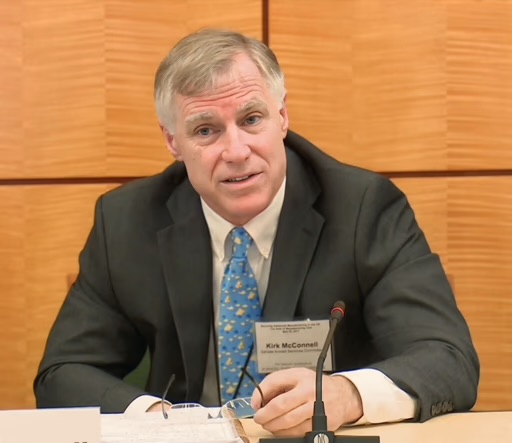
Kirk McConnell brings 37 years as a professional staff member of the Senate Armed Services Committee, the Senate Intelligence Committee, the House Intelligence Committee, and the Select Committee on U.S. National Security and Military/Commercial Concerns with the People’s Republic of China. Mr. McConnell made many significant contributions to national security during his tenure. During this time, Kirk oversaw various critical initiatives, such as establishing and advancing the cyber mission and leading national intelligence reorganization post-9/11. Additionally, he played key roles in Beyond Goldwater-Nichols defense reform, shaping microelectronics industrial base policy (including the CHIPS and Science Act), managing national and military intelligence programs, developing space systems, and overseeing information technology and systems, as well as Army and Marine Corps ground force programs. In notable recent assignments, Mr. McConnell has gained expertise in areas such as 5G wireless networks and applications, JADC2, information operations, electronic protection, quantum computing, modular open systems architectures, personnel security reform, and insider threat monitoring. Mr. McConnell earned his B.A. with a double major in Political Science and History from the University of Rochester, where he spent one year at the University of Keele during his undergraduate studies. He further obtained his M.A. in International Affairs from George Washington University
Innovation Panel
This panel will explore the potential intersections between UAP-related research and emerging sectors like aerospace, AI, and advanced energy. The conversation will highlight opportunities for U.S. leadership in transformative technologies.
Dr. Anna Brady-Estevez, PhD
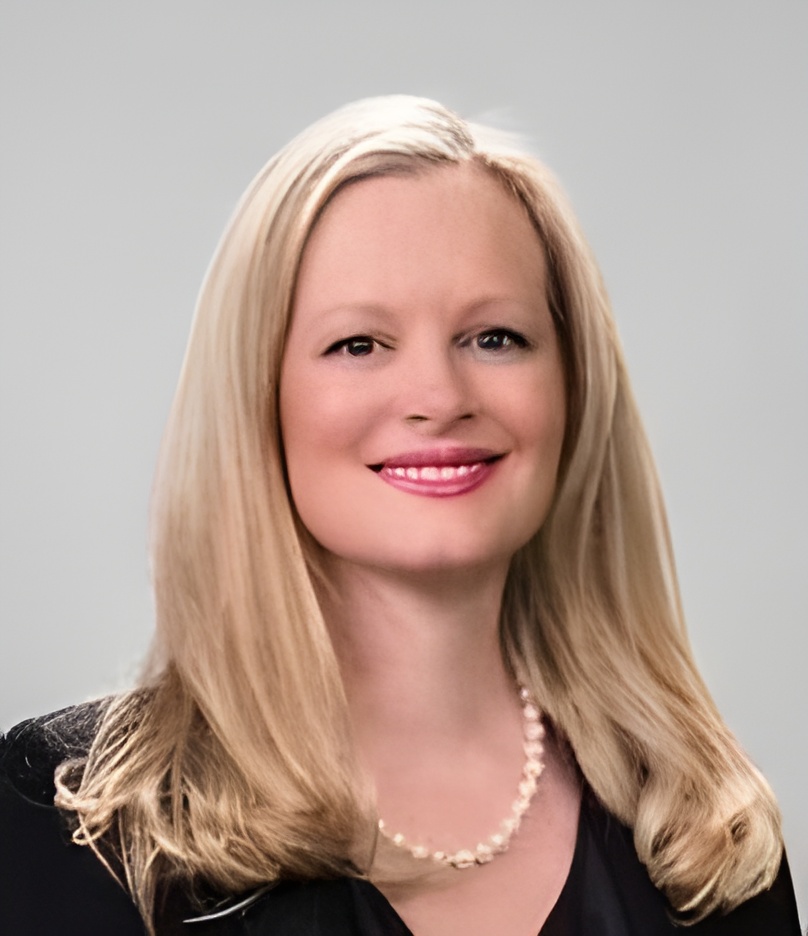
Anna Brady-Estevez is the Founding Partner of American DeepTech, a deep technology investment firm. Brady-Estevez also serves as a co-host of the NASA Ecosystemic Futures podcast which regularly covers advanced technologies, including in-depth coverage of UAP.
Dr. Brady-Estevez previously served as the Senior Investment Advisor and Partner (Venture) for the Small Business Administration’s SBIC program (a program investing over $5B annually in venture and private equity). Anna also served as a Program Director at the U.S. National Science Foundation (NSF), where she led the Small Business Innovation Research (SBIR) portfolio focused on Space Tech, Energy, Chemical, Environmental, and Distributed Ledger (Blockchain, DAGs) technologies. During her tenure, Anna invested and managed over $250M in grants to early-stage, high-impact startups. Deep technology companies that Anna has previously recommended and/or managed for funding, investment & grants have achieved over $8.5B in follow-on fianancing and $17B+ in total company valuation. Such companies include: Ascend Elements, Epirus, Design Therapeutics, Stoke Space Technologies, Fluence, Syzygy Plasmonics, Baseload Renewables (pre-Form Energy), Swarm, Air Company, Meati, Provivi, Nth Cycle, Iontra, Xona, Interlune, Kaleido, Loci, Li Industries, Urban Sky, Astroforge, Avalanche Energy, Ambercycle, Molten Industries, Noon Energy and others. While at NSF Anna also recommended funding for a number of companies who have shared their publicly visible work on UAP related and adjacent technologies.
While in government Anna led several national level initiatives, including Co-Chairing the US Space Economy Interagency working group, which included working with the interagency and private sector on space technologies inclusive of UAP related technologies, alongside other sectors such as in-space biotechnology, in-space semiconductors, space data and AI, advanced propulsion and launch capabilities. This work included bringing together hundreds of researchers, entrepreneurs and leaders in government in several recorded public meetings that are publicly recorded and visible on UAP innovation and science. Dr. Brady-Estevez also Co-Chaired alongside the White House OSTP the United States Digital Asset R&D Agenda (including assessment of Digital Currencies), and was active in funding the first interagency and private sector Decentralized Autonomous Organization, alongside the ZKP privacy preserving follow-on work to Project Hamilton (the project between the Boston Fed and MIT assessing potential for digital currencies).
Brady-Estevez previously served as Director of Corporate Strategy at Cummins Inc. and The AES Corporation, leading initiatives that resulted in over $6 billion in infrastructure investments. She was previously a management consultant with the Boston Consulting Group where she was involved in a transformation project preceding a $T+ IPO, and other high growth initiatives doubling revenues to the $20B+ level. In 2009, she was selected as a Kauffman Fellow for her leadership in innovation and venture capital and she collaborated with a number of venture firms at that time.
Anna began her career in innovation collaborating with the Office of Naval Research at the U.S. Embassy in Chile. She holds a Ph.D. in Chemical and Environmental Engineering from Yale University, where she was an NSF Graduate Research Fellow and President of the Student Government representing the 14 graduate and professional schools, and a B.S. in Chemical Engineering and Spanish from the Johns Hopkins University where she was a varsity athlete, captain and record holder.
Mike Gold
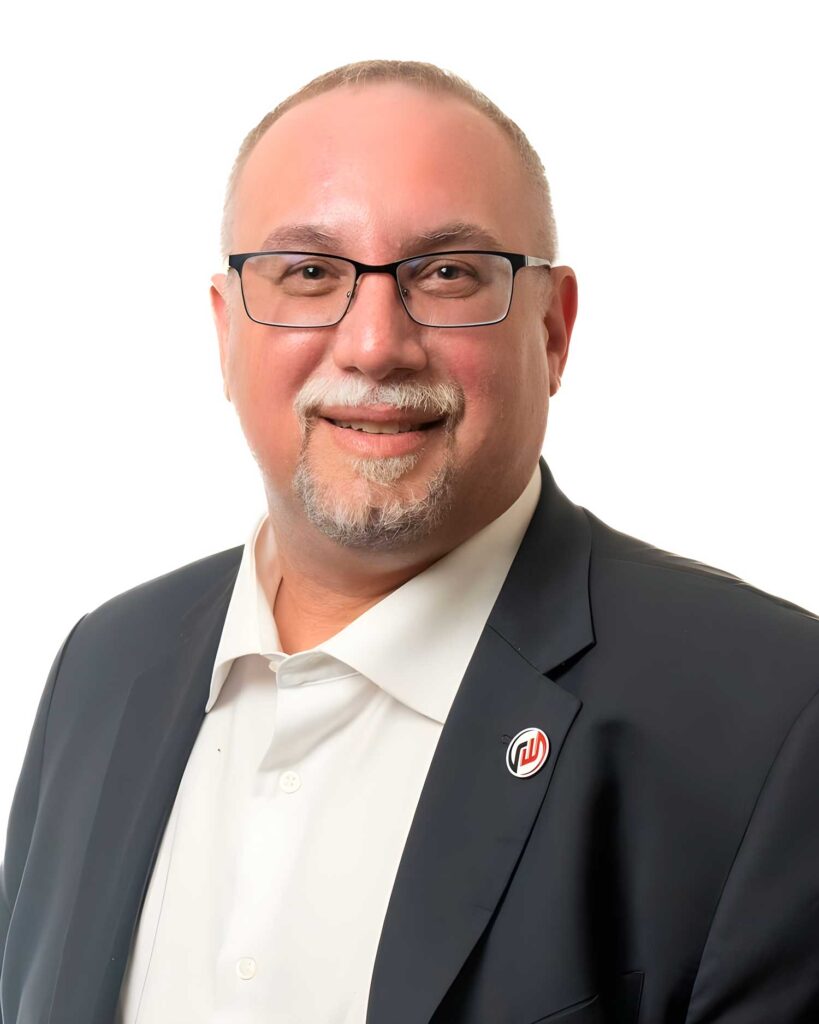
Mike Gold is President of Civil and International Space at Redwire. In this role, Mr. Gold leads
Redwire’s microgravity, civil infrastructure, and international businesses, and government relations
activities.
Prior to joining Redwire, Mr. Gold was NASA’s Associate Administrator for Space Policy and Partnerships, Acting Associate Administrator for the Office of International and Interagency Relations, and Senior Advisor to the Administrator for International and Legal Affairs. At NASA, Mr. Gold led the development and implementation of the Artemis Accords, which establish norms of behavior to ensure a peaceful and prosperous future in space for all of humanity. Mr. Gold also successfully led the negotiations to develop and execute the binding agreements for the lunar Gateway, the development and implementation of the first lunar resource purchase by NASA, and reforming planetary protection regulations. Due to this trailblazing policy work, Mr. Gold was awarded NASA’s Outstanding Leadership Medal in 2021, and the International Astronautical Federation’s prestigious Excellence in International Cooperation Award in 2024.
Before joining NASA, Mr. Gold was Vice President of Civil Space at Maxar Technologies and General Counsel for the company’s legacy Radiant Solutions business unit. Additionally, Mr. Gold spent thirteen years at Bigelow Aerospace, where he established the company’s Washington office, oversaw the launches of the Genesis 1 and 2 spacecraft, and was a recipient of a NASA Group Achievement award for the development and deployment of the Bigelow Expandable Activity Module onto the International Space Station.
Mr. Gold is currently the Vice Chair of the Commercial Spaceflight Federation and has previously served as Treasurer. Also, in 2022, Mr. Gold was appointed by the NASA Associate Administrator for the Science Mission Directorate to serve on the Agency’s Unidentified Anomalous Phenomena (UAP) Independent Study Team which was subsequently given the NASA Silver Group Achievement Award for their collective efforts to advance the understanding of this phenomena. Moreover, Mr. Gold was appointed by the U.S. Secretary of Transportation to Chair the Commercial Space Transportation Advisory Committee from 2012 – 2019 and was appointed by the NASA Administrator to serve on the NASA Advisory Council and chair its Regulatory and Policy Committee in 2018.
Mr. Gold has authored numerous law review articles and editorials addressing commercial space issues. He has also testified on several occasions before the U.S. House of Representatives and the U.S. Senate as an expert in commercial space as well as space law and policy.
Mr. Gold received a BA from Brandeis University and a JD from the University of Pennsylvania Law School where he founded and led the Journal of Constitutional Law.
Fernanda Pires, MUFON CAG International Director, Regional Director for MUFON Canada, for Central and South America, ERT;
Victor Viggiani, Director of Canadians for Disclosure
SUPPORTED BY: CIFE – Scientific Channel of UFOs Phenomena & Space Research; MUFON International, MUFON Canada, MUFON Brazil, Toronto [ZNN] ZlandCommunications & Mark McNabb director of Skylight Films.

